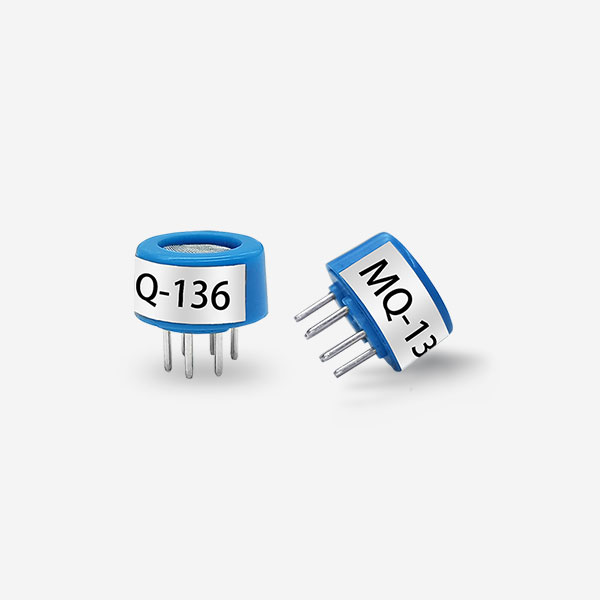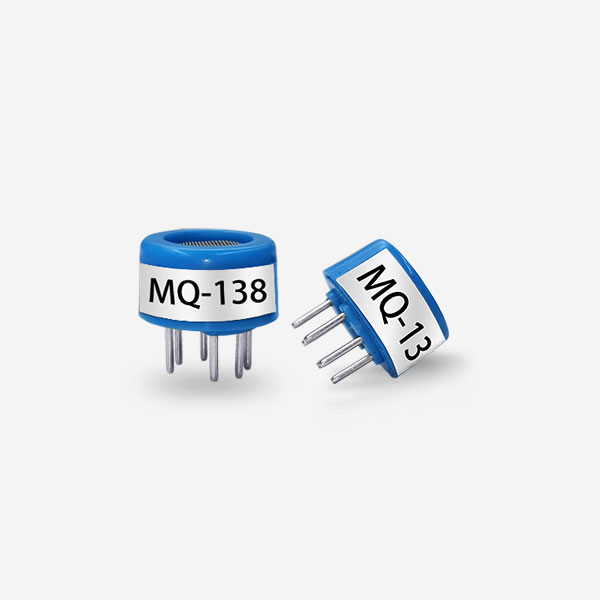Background:
Drinking water and wastewater treatment plants often consider a number of important factors when selecting a gas detection solution. An ideal gas detector should be easy to operate and maintain, and the detection results should be reliable and accurate. Jingxun has many years of industry experience and can provide a wide range of gas detectors. Provide solutions for various situations that may be encountered in the water treatment process.
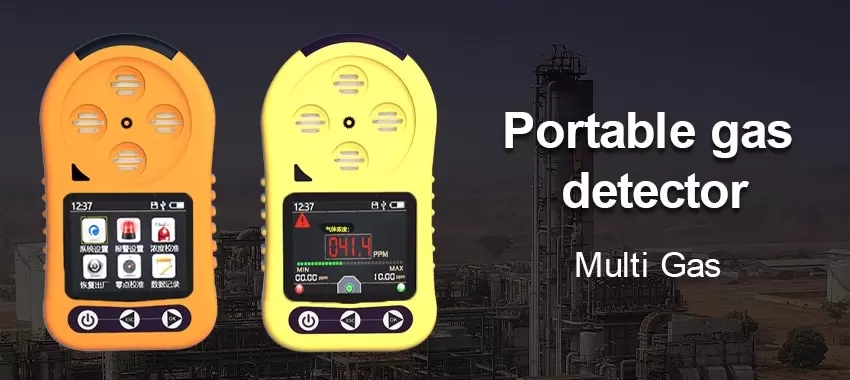
Why use a gas detector:
Flammable and toxic gases such as methane and hydrogen sulfide gas are generated during wastewater treatment. In addition, the oxygen-enriched, ozone, and pH-controlling carbon dioxide gas used to treat wastewater is a ubiquitous danger. Other toxic and harmful gases. Examples include ammonia and chlorine, which are widely used in the production of safe drinking water. In order to prevent them from leaking from storage tanks or processing equipment, it is critical to employ reliable gas leak detection techniques. During wastewater treatment, operators need reliable and durable portable gas detectors as personal protective equipment.
The best solution for gas detection is a combination of portable and stationary detectors. With stationary gas detectors, operators can improve the instrument's process automation system by regulating risk management. This process requires little human intervention, greatly reducing operating costs. Choosing the right gas detector can not only protect people and property, but also save money. Take hydrogen sulfide gas detection as an example, as it is corrosive to metals such as steel, brass and copper. Therefore, the gas detector with stainless steel casing is the best choice.
Introduction to Electrochemical Gas Sensors:
The choice of which gas sensor to use is also critical. So how do you choose among electrochemical, semiconductor, infrared (IR), and catalytic combustion gas sensors?
Electrochemical gas sensors are the first choice for monitoring oxygen deficiency, oxygen enrichment, or detecting low concentrations of toxic gases such as hydrogen sulfide gas or chlorine. Jingxun's electrochemical gas sensor can monitor gas on-line very well.
Semiconductor gas sensor:
Compared to electrochemical gas sensors, semiconductor gas sensors have a longer lifespan in harsh environments. Therefore, it is widely used in environments with high temperature and humidity and where there may be high concentrations of hydrogen sulfide. Many water treatment plants opt for the fixed gas detectors of Proximity to detect oxygen, carbon dioxide and other toxic gases. Because it has the advantages of high signal stability, high sensitivity and long service life. This detector is easy to maintain and operate.
Infrared Gas Sensor:
Infrared (IR) gas sensors are ideal for detecting explosive gases such as methane or carbon dioxide gas. It is also suitable for working in environments containing a large amount of hydrogen sulfide or highly corrosive gases. Its detection principle is based on the selective absorption characteristics of the near-infrared spectrum of different gas molecules. The infrared sensor is very rugged.
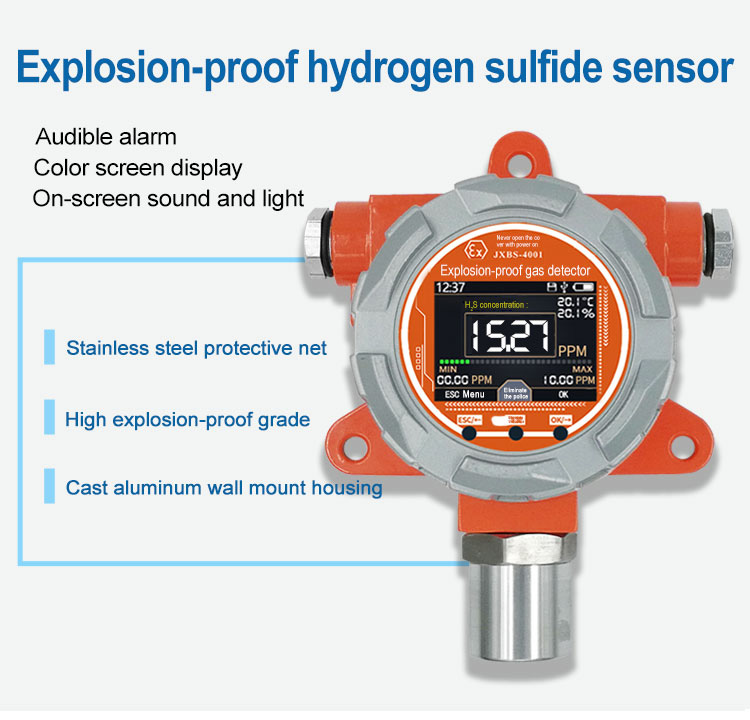
Introduction of hydrogen sulfide gas detector:
The explosion-proof fixed H2S gas detector can continuously monitor the concentration of hydrogen sulfide on-site for 24 hours. Hydrogen sulfide gas detector can be used in refineries, chemical plants, liquefied petroleum gas stations, boiler rooms, painting plants and other places where gas exists.
Jingxun unimpeded portable H2S detector, hydrogen sulfide detector. It can be used for gas storage leakage monitoring, pharmaceutical factory, food factory, hospital gas disinfection residue detection, electrostatic precipitator, gas generator, air purifier, gas leakage, indoor air gas detection site. H2S gas detector, ABS shell body, comfortable and lightweight. Measurement accuracy, response time under 30 seconds; accuracy of 3% or less. Rechargeable lithium battery, support mobile power, large battery capacity, long standby time. IPS color screen interface, 320*240 resolution, intuitive display. When the detected gas exceeds the set gas value, the sensor lights up to alarm, and the high-decibel buzzer beeps. The instrument is marked in red, reminding in time, with high safety.
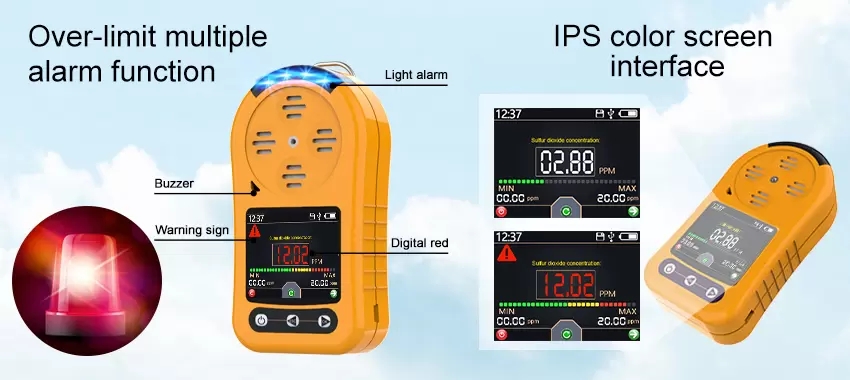
Pay attention to the choice of water quality detector:
It is important for water treatment plant operators to choose the gas detector that suits their specific needs. In the water treatment industry, it is necessary to choose and deploy the most reliable and accurate gas detectors for harmful gases. Jingxun has a wide range of gas detection expertise, which can help users choose the most suitable detector for different application needs.
As with gas detection tasks in the water treatment industry, choosing the right solution for each application is critical. Especially in harsh and/or corrosive operating environments, the detection of high concentrations of gas that is instantaneous or accumulated over time requires the use of reliable and proven detectors. As each application has different needs, please consult with Genesys to obtain the best solution for your specific needs.
 : +86 155 8830 2704
: +86 155 8830 2704 : jxdziot@gmail.com
: jxdziot@gmail.com